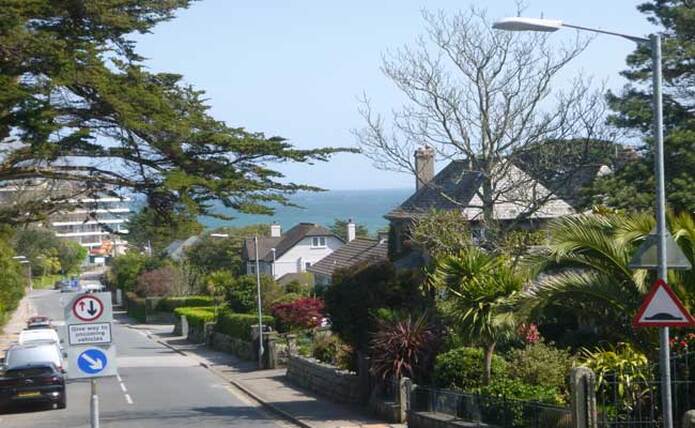The briefing is the one in which the health secretary answers a question about his recent week off with “mild symptoms”.
He’s feeling great, he says, but yes, he’s still social-distancing. He’s had it, but that doesn’t mean he can’t catch it again and he doesn’t know whether he’s still infectious.
“Expletive deleted,” says the journalist, leaning forward on the sofa they bought in the pre-crisis sale. She’s actually quite foul-mouthed, but I’m a prude so we’re going to have to fix the dialogue in the edit. “I knew it!”
“Huh?” says her partner, who’s sitting on the sofa next to her in his pyjamas, growing a beard and playing a first-person shooter on a laptop.
“Secondary infections!” says our protagonist. She grabs the laptop – yes, of course he protests; he hasn’t saved, etc. – and starts frantically tapping at the keys.
Because this is a tense modern urban documentary-style drama, he peels himself up off the sofa and goes over to the kitchen-part of the room to make himself a peanut-butter-and-banana sandwich.
“Oh no!” says the journalist, her face eerily lit from below by more light than could possibly be shining from the laptop screen in front of her. “Oh no!”
Out on the balcony, the string quartet launches into a dark'n'doomy variation on the theme tune (I know I said 'novelisation', but this is a global emergency so we're back in the film).
“Whash-sa-fuff?” says her partner, coming forward from the kitchen. Because this is a tense modern urban documentary-style drama – and uncompromisingly authentic with it – everything he says from now on has to be through a mouthful of peanut-butter-and-banana sandwich.
“Here! Look!” She stands up, comes round the sofa and thrusts the laptop into his hands.
“Ghar-fuh!” He manages to sit back down on the sofa, get the laptop onto his knees, and take another bite of the peanut-butter-and-banana sandwich.
“Phlurf?” he says after a moment. “Es jussa phlog wriff...”
“A blog written by a maverick scientist with interesting spectacles and a little beard whom nobody believes. I know that! But look at this! And this!”
She’s pointing to a news story from South Korea about recovered patients getting ill again. And another one from Japan.
He still doesn’t get it and she doesn’t want any more crumbs sprayed onto their new sofa, so she launches into the exposition that gets the plot started. If we can still get the virus after we’ve had the virus –
– because of all the gritty realism going around, she leaves the door open while she visits the bathroom, and doesn’t stop talking –
– then this is even more serious than we’ve realised.
It’s not the easing of the lockdown that’s the issue –
– because she’s a young female protagonist being written by an older male author who hasn't quite decided on his target audience, she tears off all her clothes in front of the full-length mirror and confirms to herself that those are still there, but doesn’t stop talking –
– so much as the likelihood of a second wave of the infection after the government has used up all its credibility on fighting the first wave.
“Not sure that any of it's true, but if it is, what do we do?” she concludes.
“Say indoorsh?” he says.
“Oh, babe.” She watches him cram the last of the sandwich into his mouth, smearing peanut butter and squished banana everywhere. “Wash your hands.”
News just in that although "our economy" has suffered a hit worse than ever, it's expected to "bounce back" and will resume "economic growth" just as soon as we switch it back on again at the mains.
"Economic growth" is what happens when ever-increasing numbers of people buy ever-increasing quantities of things build in sweaty, overcrowded factories by workers not paid enough to buy their own health care.
You get "economic growth" when ever-increasing numbers of people buy ever-increasing numbers of airline tickets to remote places with exotic germs to which they have no resistance. "Economic growth" is what happens when "the business community" heads back to the execuive lounge and the rest of us form orderly queues for the tourist seats.
Economic growth isn't natural, and nor is it sustainable. It's what we get if we wake up and decide the crisis never happened. Assuming there is a vaccine eventually - assuming we have the option of going back to "normal" - a return to the pursuit of "economic growth" would see us well on our way to the next crisis.
While we're sitting at home not chasing "economic growth", the planet is cleaning up its act. Efficient, isn't it? Fast. More effective than we ever were, with our targets and climate-change conferences.
Let's hope we'll be allowed to come back from this.

